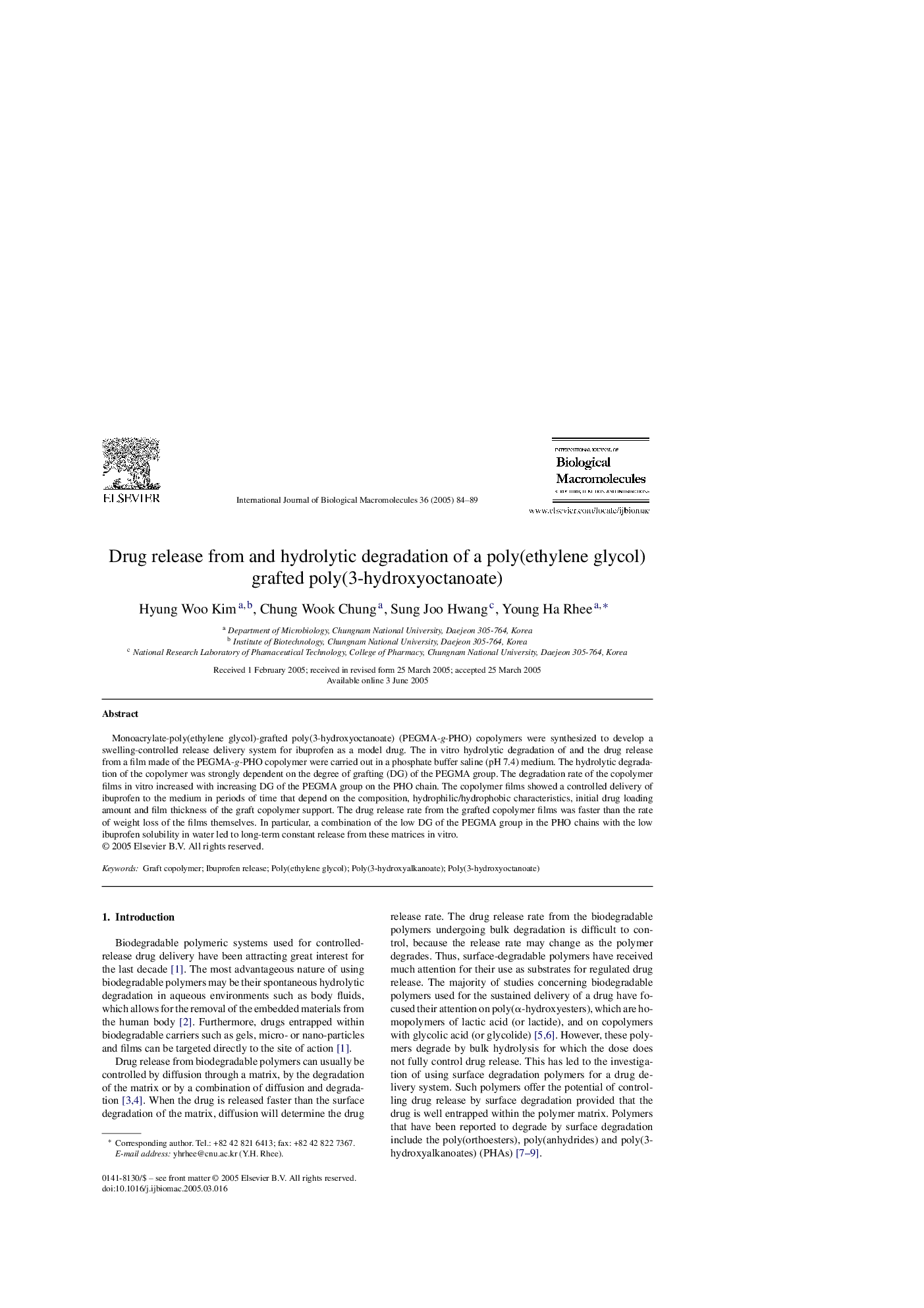| Article ID | Journal | Published Year | Pages | File Type |
|---|---|---|---|---|
| 9890906 | International Journal of Biological Macromolecules | 2005 | 6 Pages |
Abstract
Monoacrylate-poly(ethylene glycol)-grafted poly(3-hydroxyoctanoate) (PEGMA-g-PHO) copolymers were synthesized to develop a swelling-controlled release delivery system for ibuprofen as a model drug. The in vitro hydrolytic degradation of and the drug release from a film made of the PEGMA-g-PHO copolymer were carried out in a phosphate buffer saline (pH 7.4) medium. The hydrolytic degradation of the copolymer was strongly dependent on the degree of grafting (DG) of the PEGMA group. The degradation rate of the copolymer films in vitro increased with increasing DG of the PEGMA group on the PHO chain. The copolymer films showed a controlled delivery of ibuprofen to the medium in periods of time that depend on the composition, hydrophilic/hydrophobic characteristics, initial drug loading amount and film thickness of the graft copolymer support. The drug release rate from the grafted copolymer films was faster than the rate of weight loss of the films themselves. In particular, a combination of the low DG of the PEGMA group in the PHO chains with the low ibuprofen solubility in water led to long-term constant release from these matrices in vitro.
Related Topics
Life Sciences
Biochemistry, Genetics and Molecular Biology
Biochemistry
Authors
Hyung Woo Kim, Chung Wook Chung, Sung Joo Hwang, Young Ha Rhee,
